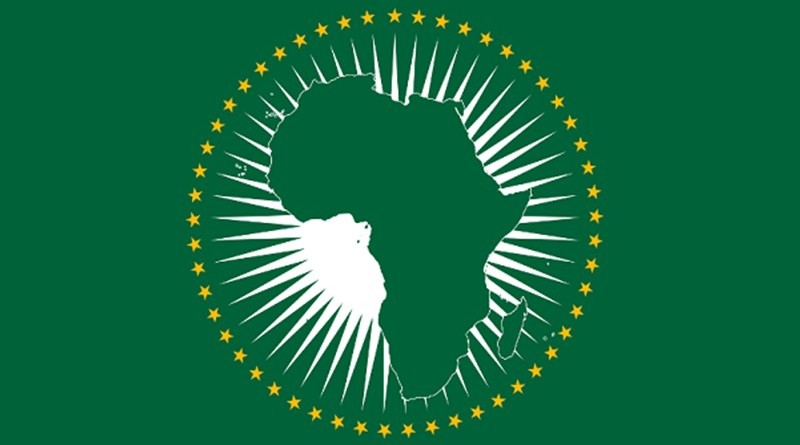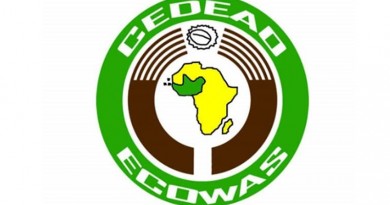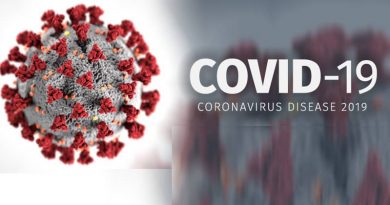Positioning Africa as the hub for health innovation and trade
The Merck (MerckGroup.com) Africa Bureau aims to accelerate the business transformation of the company operations in Africa to ensure sustainable business and create long-term value. Merck has unveiled plans to expand its footprint in Africa through a four-tiered program of awareness, diagnosis, training of healthcare professionals, and treatment access. Merck announced the brand-new Thyroid awareness program: ThyroAfrica to spread disease awareness. Africa Cancer Care program will be launched to enhance colorectal cancer diagnosis across Africa. Merck continues its work in the fight against Malaria and the neglected tropical disease (NTD) schistosomiasis. Merck is actively bringing technical and process expertise with various key African countries and customers to build local manufacturing capabilities.
Merck, a leading science and technology company, announced today its further commitment to Africa, by strategically expanding its access and awareness programs and strengthening the health systems and patients in low- and middle-income countries across the continent. The announcement came today during the Africa Health ExCon from 5th to 7th of June 2022 in Cairo, Egypt.
In this three-day event, stakeholders across Africa are meeting to learn from the worldwide leaders and experts in healthcare, as well as to share and exchange knowledge and experiences with more than 20,000 participants from more than 55 countries. The key objectives of Africa Health ExCon are refocusing on Africa’s investment potential, ensuring equitable access of health technology, the thriving of the health and pharma businesses, and incubating health innovation and trade in Africa.
”Our aspiration is to be one of the leading healthcare partners in sub-Saharan Africa and to work with NGOs and governments to build and strengthen sustainable health systems within it,” said Dr. Karim Bendhaou, Head of Merck Africa Bureau. “The Merck Africa Bureau aims to accelerate the business transformation of our operations in Africa to ensure sustainable business and create long-term value while seeking to balance environmental, social, and governance aspects. Through the four pillars of Private Public Partnership model, we work hand in hand with our stakeholders through various programs to fight counterfeit medicines, to invest in the technology transfer, to support supply chain sustainability and localization, and to decrease fragmentation of the market.’’
During the ExCon, Merck has unveiled plans to expand its footprint in Africa through a four-tiered program of awareness, diagnosis, training of healthcare professionals and treatment access. The company announced their brand-new Thyroid awareness program and upcoming launch of the Africa Cancer Care program in addition to enhancing ongoing initiatives.
Thyroid disease awareness is relatively very low in Africa. The ThyroAfrica program’s objective is to establish a collaborative partnership with the endocrinology & thyroid disease societies in Africa. This aims to increase disease awareness via communication channels for mass reach of around 7 million people and to offer the proper link for TSH (thyroid-stimulating hormone) test.
Africa Cancer Care program will be launched by the end of June to enhance colorectal cancer diagnosis across Africa by creating hubs of RAS testing in African countries such as Kenya and Nigeria. The RAS (RAT Sarcoma) test is a gene mutation analysis in colorectal cancer. As a predictive biomarker for the disease, it helps to guide treatment and determine outcomes. This would help to counteract the rising demand for specialist care especially with the existing healthcare facilities that require the scaling of resources. This has led to the rise in medical tourism across the continent, as individuals seek specialised care elsewhere. This is in addition to enhancing access to medication and providing HCP capacity-building programs through high quality trainings to oncologists, pathologists, nurses to support diagnosis and treatment of metastatic colorectal cancer in Africa.
“We will remain fully committed to increase access to innovative medicines across Africa and on ground awareness campaigns in a favour of underserved populations in low- and middle-income countries in Africa through our investments and our innovations in science & technology, together with our external partners,” said Ramsey Morad, Regional Vice-President, Head Middle East, Africa, Turkey & Russia/CIS at Merck Healthcare. “Beyond developing novel treatments, we must address the gaps in awareness, accessibility, affordability and availability of treatment.’’
After having signed a Memorandum of Understanding, Merck and the African Federation for Fertility Societies (AFFS) have been jointly working on an agenda to further develop educational training programs for healthcare professionals, aimed at improving access to high-quality infertility care for patients in Africa. By combining their forces, AFFS has sought support from Merck in order to develop a regional patient awareness campaign to be launched later this year. Additionally, they are hosting a multi-national advisory board to gain insights on educational gaps for healthcare professionals in AFFS member societies in African countries.
Professor Gamal Serour, President of African Federation of Fertility Societies stated that “AFFS welcomes and appreciates collaboration with Merck for the implementation of high-quality care across Africa”.
Merck also continues its work in the fight towards the elimination of the neglected tropical disease (NTD) schistosomiasis towards its elimination as a public health burden. In partnership with the World Health Organization (WHO), we provide up to 250 million tablets of praziquantel per year to treat mainly school-aged children in sub-Saharan Africa (SSA). Since 2007, Merck has donated over 1.5 billion tablets and enabled the treatment of more than 600 million school-aged children in 47 countries in SSA. To support the elimination of schistosomiasis, Merck have adopted an integrated approach which, beyond medicines, includes health education as well as water, sanitation and hygiene (WASH) initiatives. We also conduct research for new drugs and diagnostics and develop, together with a consortium of partners, a potential new paediatric treatment option for children as of 6 years of age and below.
Since 2015, Merck has also been very active in the fight against malaria through a holistic approach to prevent, control, and eliminate the disease. Examples include our M5717 drug development program as well as the creation of the Pan African Vivax and Ovale Network (PAVON) in over 10 countries, which has led to important policy changes regarding malaria in Botswana.
During the ExCon, Merck aims to strengthen our existing cooperation with the Pharma industry and Medicine & Quality Regulators across the continent in addition to highlighting strategic projects in Africa carried out by Merck’s Life Science business sector. These efforts bring our expertise in touch with various key African countries and research institutes to enable distributed manufacturing of much-needed vaccines, biological drugs, and therapies in African countries. “Our goal at Merck is to support capacity-building of biologics manufacturing and development in Africa,” said Youssef Gaabouri, Head of Sales Middle East & Africa at Merck Life Science BioProcessing. Furthermore, Merck provides expertise to Regulatory Agencies and shares knowledge regarding the use of quality products for audit purposes. In line with the Merck’s commitment to sustainable access to health solutions in low- and middle-income countries, we implement and enhance health access programs through our shared value initiatives, global health partnerships, and access to medicine strategy.
Distributed by APO Group on behalf of Merck.All Merck Press Releases are distributed by e-mail at the same time they become available on the Merck Website. Please go to www.MerckGroup.com/subscribe to register online, change your selection or discontinue this service.
About Merck:
Merck, a leading science and technology company, operates across life science, healthcare and electronics. Around 61,000 employees work to make a positive difference to millions of people’s lives every day by creating more joyful and sustainable ways to live. From advancing gene editing technologies and discovering unique ways to treat the most challenging diseases to enabling the intelligence of devices – the company is everywhere. In 2021, Merck generated sales of € 19.7 billion in 66 countries.
Scientific exploration and responsible entrepreneurship have been key to Merck’s technological and scientific advances. This is how Merck has thrived since its founding in 1668. The founding family remains the majority owner of the publicly listed company. Merck holds the global rights to the Merck name and brand. The only exceptions are the United States and Canada, where the business sectors of Merck operate as MilliporeSigma in life science, EMD Serono in healthcare, and EMD Electronics in electronics.
About Schistosomiasis:
Schistosomiasis is a chronic condition and one of the most common and most devastating parasitic diseases in tropical countries. It is estimated that more than 240 million people are infected worldwide and that around 200,000 die from it each year. Flatworms transmit the disease. It is widespread in tropical and subtropical regions where large sections of the population have no access to clean water and sanitary installations. People become infected with the parasite via contact with freshwater, for example while working, swimming, fishing or washing their clothes. The minuscule larvae penetrate human skin, enter the blood vessels and attack internal organs. The infection rate is particularly high among children.
About Malaria:
Malaria is an acute febrile illness caused by Plasmodium parasites. The parasites are spread to people through the bites of infected female mosquitoes. There are five different types of human-infecting Plasmodium; the deadliest are Plasmodium falciparum (mostly in Africa) and Plasmodium vivax (mainly in Asia and South America). Left untreated, malaria can progress to severe illness, and even to death. Today, half of the global population is at risk of malaria. In 2020, there were an estimated 241 million cases of malaria (https://bit.ly/3aA0mLW) worldwide – over 600,000 people died from the disease, with 95% of cases and deaths in Africa. Malaria strikes hardest among pregnant women and children in Sub-Saharan Africa. Children under five still account for about 80% of all malaria deaths worldwide.




